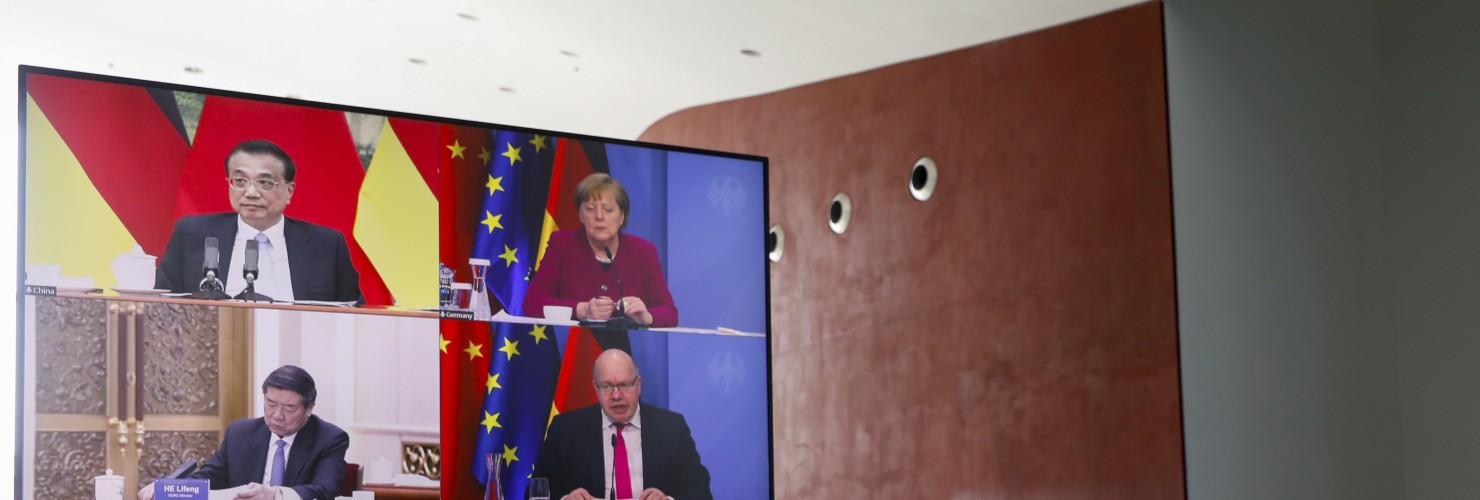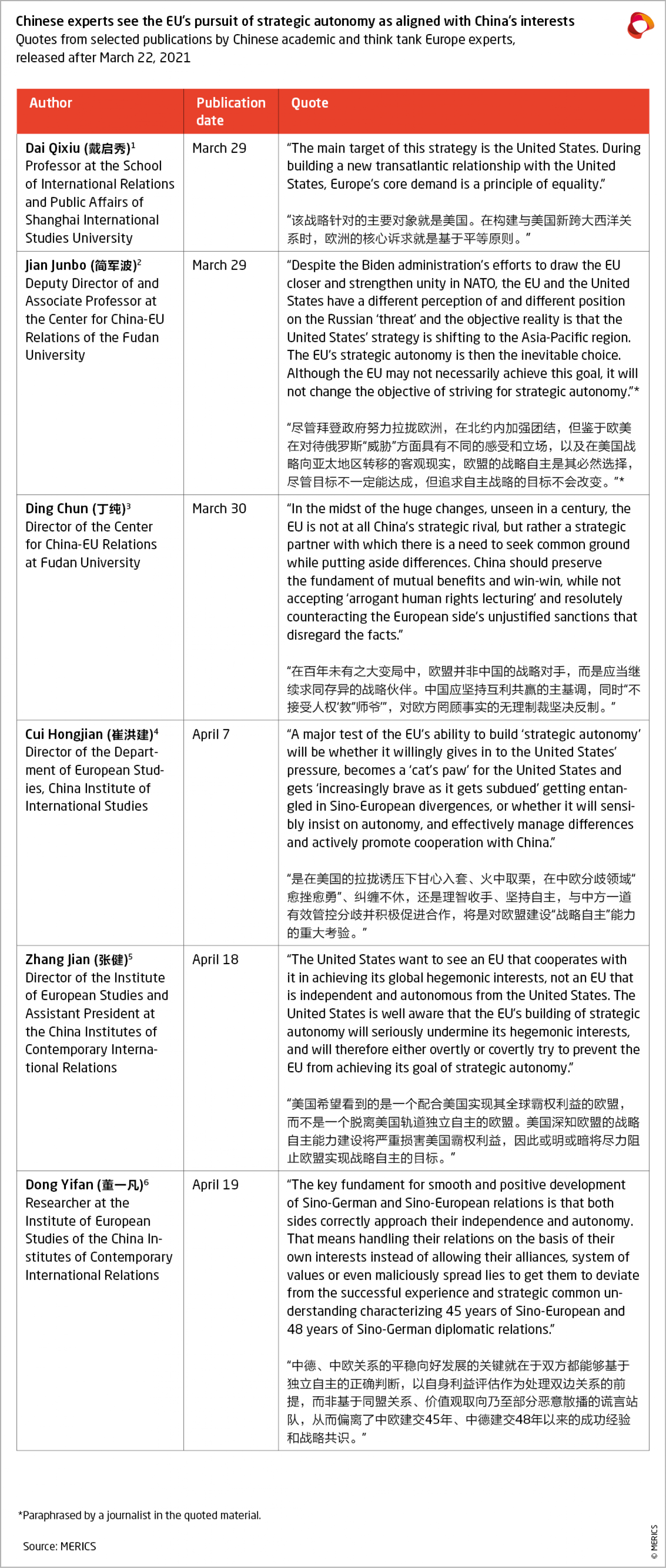

“Correct choice” on strategic autonomy: What China wants from the EU
Strategic autonomy is a loosely defined policy concept, whose precise meaning the EU struggles to communicate clearly. Broadly, it revolves around the bloc increasing its strategic capabilities. Beijing has, in a number of diplomatic exchanges over the past few months, voiced its support for the EU’s strategic autonomy (战略自主). According to Chinese readouts, this was the message also delivered by President Xi Jinping in post-sanctions exchanges with European leaders.
In his call with German Chancellor Angela Merkel on April 7, Xi expressed hopes that “the EU will make the right judgment independently and truly achieve strategic autonomy” (希望欧盟独立作出正确判断,真正实现战略自主). During the video conference with Chancellor Merkel and French President Emmanuel Macron on April 16, Xi spoke of the need to “firmly grasp the general orientation in the development of EU-China relations from a strategic heights” (要从战略高度牢牢把握中欧关系发展大方向).
In the aftermath of the exchange of sanctions on March 22, a number of prominent Chinese Europe experts commented on Europe’s strategic autonomy. Their perspective sheds light on the mainstream Chinese vision for the EU-China relationship and its future.
EU strategic autonomy as seen from the Chinese perspective
Chinese experts tend to characterize Europe’s goal of strategic autonomy as preventing the “state of total dependence on the United States” (对美国的全面依赖状态). The United States, in turn, is seen as “overtly and covertly trying to prevent the EU from achieving the goal of strategic autonomy” (或明或暗将尽力阻止欧盟实现战略自主的目标). Merkel’s and Macron’s comments about the absence of full alignment between European and US interests are frequently cited as proof that the EU is pursuing “the third way” (第三条道路) amid US-China tensions.
According to this logic, maintaining cooperation with China as a counterbalance to the United States is a necessity for the EU. Its internal challenges, exacerbated by the pandemic, increase the importance of maintaining strong economic relations with China. Sanctions and the EU’s tensions with Beijing are, therefore, “repeatedly emerging deviations from policy towards China” (在对华政策上屡屡出现偏差), which, China hopes, will not disturb strategic considerations. De-escalation and maintaining the status-quo in EU-China relations appears to be achievable, according to this view, as long as the EU remains committed to increasing its autonomy.
Trajectory and directions
Given that such an assessment appears to be shared by the top Chinese leadership, China is likely to remain confident about its position of strength vis-à-vis Europe, seen by Beijing as a geopolitically dependent actor. It will also continue to attempt to leverage ambiguities in the EU’s concept of strategic autonomy to prevent alignment on China between transatlantic partners.
Seen in this light, it is easier to interpret China’s harsh retaliation to EU sanctions and the increased intimidation attempts on the part of Chinese diplomats in Europe. Beijing’s calculus is that, if individuals and institutions that Beijing views as “stumbling blocks” to EU-China relations maintaining their “correct” direction are silenced or alienated, the strategic trajectory favorable to China will have a better chance of prevailing despite growing calls for a reevaluation of China policy across Europe.
Read more
- Sina Finance [CN]: Biden participated in the EU summit and the EU reaffirmed its strategic independence. Can US-EU relations go back to the past? (Quotes 1,2)
- Xinmin Evening News [CN]: Ding Chun: At war, is the EU still our strategic partner? (Quote 3)
- CIIS [CN]: The EU's "strategic autonomy" must not find the wrong direction (Quote 4)
- Sohu [CN]: Zhang Jian: EU's Strategic Independence and China-EU Relations in the Post-epidemic Era (Quote 5)
- CASS [CN]: "Independent cooperation" is the way for China-Germany and China-EU relations to be stable and far-reaching (Quote 6)
You are reading an excerpt of our latest MERICS Europe China 360°.
You can subscribe to this publication on an individual basis. For more information on our packages, click here.
MERICS members also have privileged access to this product. If you want to learn more about our membership model for institutions and businesses, please click here.


